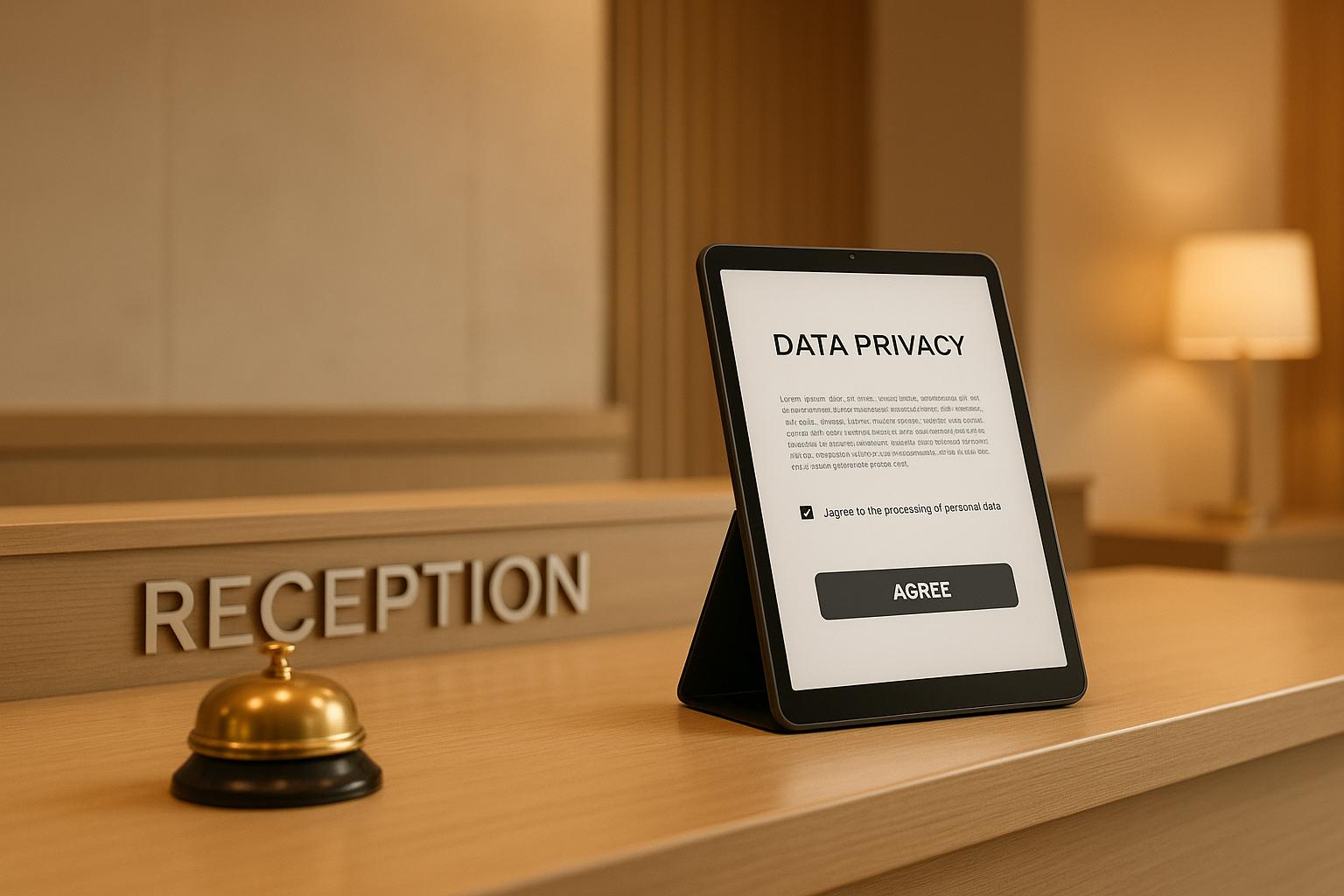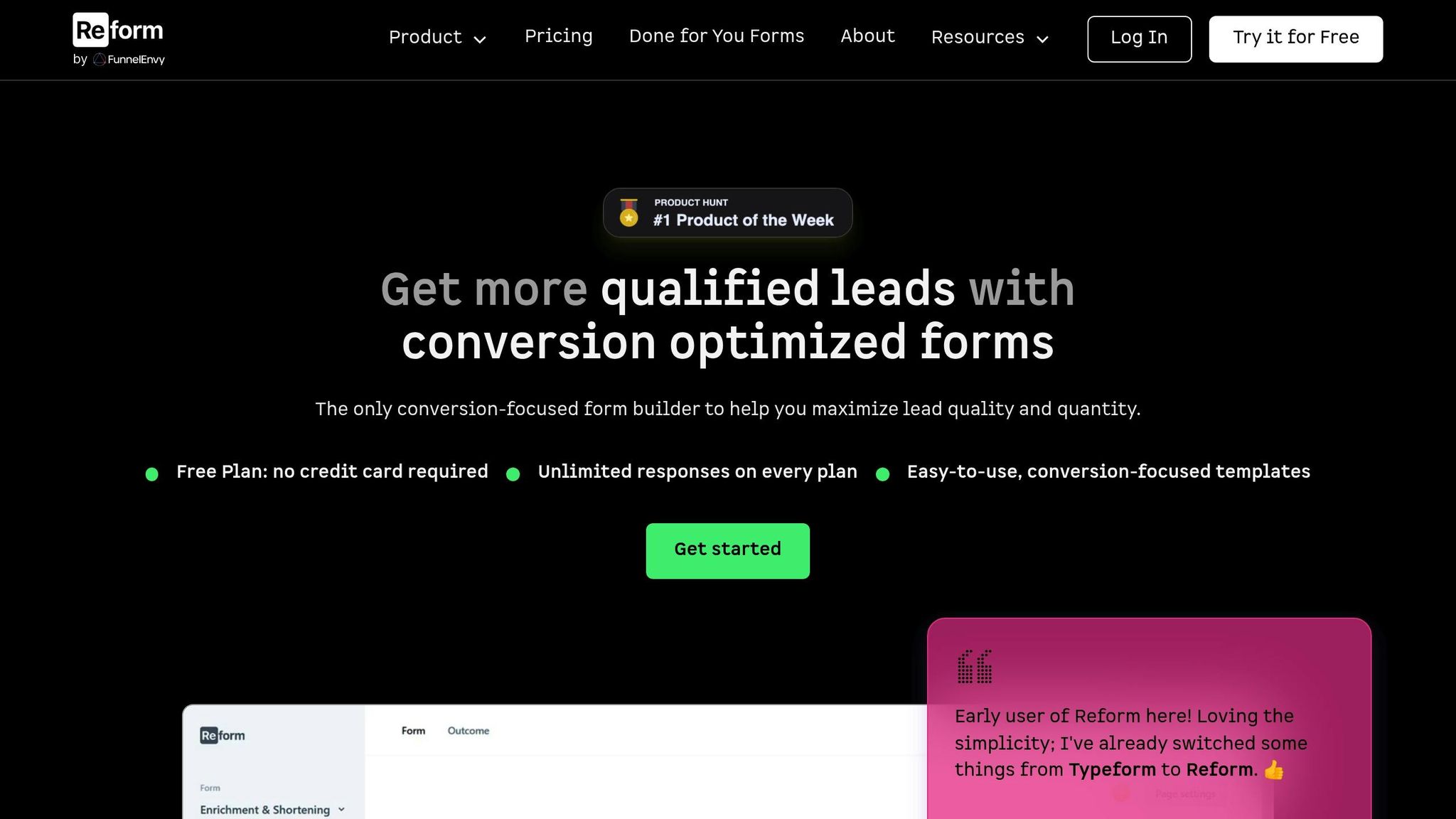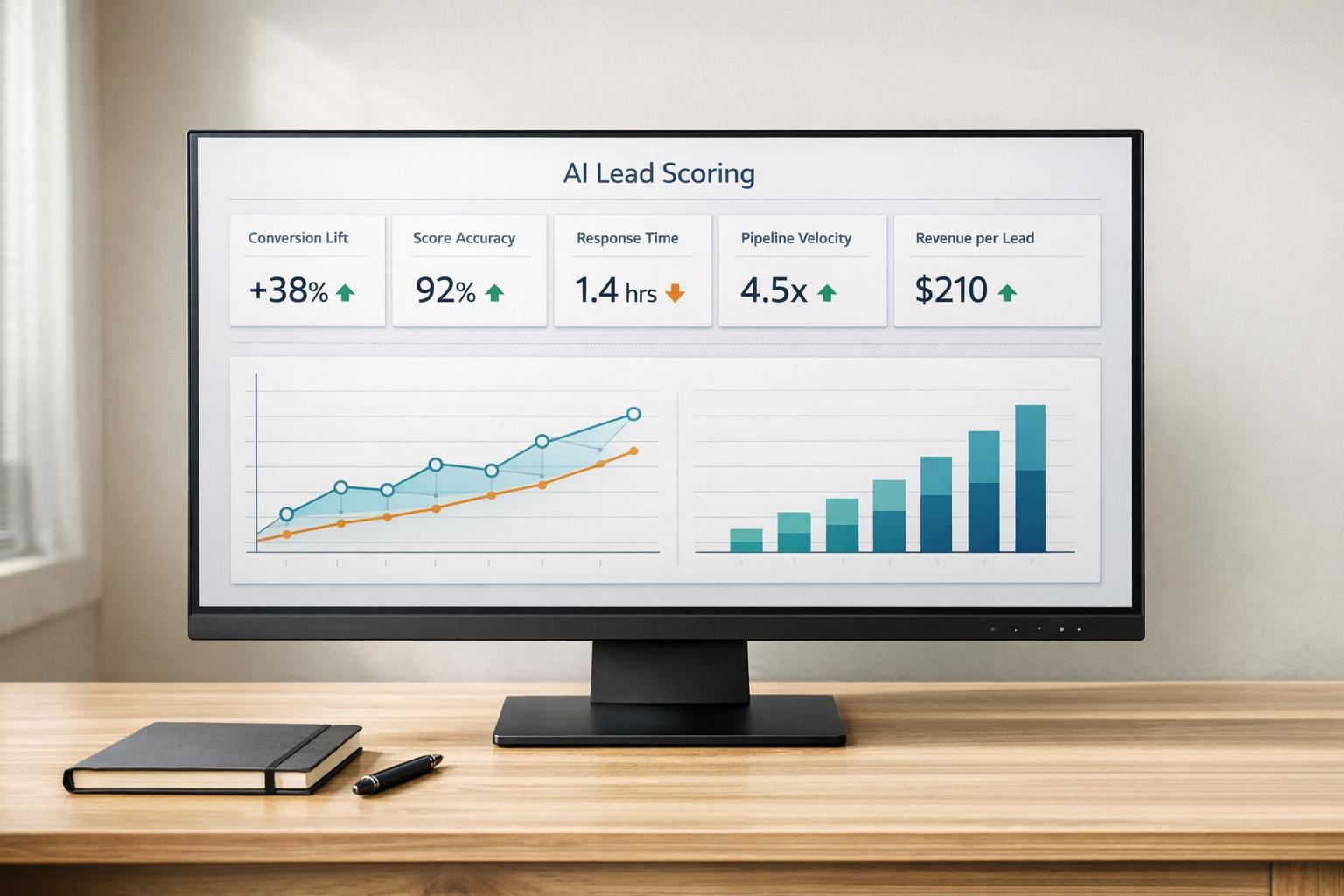How GDPR Impacts Guest Data Collection

GDPR requires businesses to handle personal data responsibly, especially in the hospitality industry. If your hotel or booking platform deals with EU guests, you must comply with GDPR - even if you're based outside the EU. Here's what you need to know:
- Key Rules: Collect only necessary data, ensure accuracy, secure it, and delete it when no longer needed.
- Protected Data Types: Names, payment info, passport numbers, and more.
- Penalties: Non-compliance can lead to fines of up to €20 million or 4% of annual revenue.
- Challenges: Data security, managing third-party vendors, and handling international data transfers are common pain points.
To stay compliant, businesses should conduct data audits, secure valid consent, and prepare for potential breaches. Tools like no-code form builders can simplify compliance by automating consent collection and ensuring secure data handling. By following GDPR principles, you can protect guest data while maintaining trust.
What Is GDPR Data Privacy Compliance For Hospitality? - Hospitality Management Mastery
Common GDPR Compliance Challenges for Guest Data
Hospitality businesses face unique hurdles when managing guest data across various touchpoints to meet GDPR requirements. Below, we’ll dive into the key challenges: securing data, managing third-party vendor risks, and navigating data retention and international transfer rules.
Data Security and Breach Prevention
Protecting guest data from unauthorized access is critical. Hotels and restaurants often handle sensitive information like payment details and passport numbers, making them attractive targets for cyberattacks. Weak encryption, outdated software, and poor access controls can leave systems exposed. A stark example is the 2018 Marriott International data breach, which compromised the personal details of over 300 million guests. The breach included names, passport numbers, and payment details, ultimately leading to regulatory scrutiny and a $23 million fine by the UK's Information Commissioner's Office for inadequate security measures.
To prevent breaches, hospitality businesses should encrypt personal data both at rest and during transmission, enforce strict role-based access controls, and perform regular security audits. Additionally, given the high employee turnover in the hospitality sector, consistent GDPR training for staff is crucial to maintaining compliance.
Third-Party Vendor Compliance
Third-party vendors are an integral part of the hospitality industry, providing services like booking engines, payment processing, CRM systems, and marketing tools. However, ensuring all external partners comply with GDPR can be a daunting task, as guest data often flows across multiple platforms.
To mitigate risks, businesses should secure GDPR-compliant processing agreements that clearly define each party's data protection responsibilities. Without these agreements, a breach involving a vendor could result in shared liability. Conducting due diligence - such as reviewing a vendor's encryption methods and data minimization practices - and regularly assessing their security measures can help reduce vulnerabilities.
Data Retention and International Transfer Rules
GDPR requires that personal data be retained only for as long as necessary for its original purpose. This can be challenging for hospitality businesses, which often keep historical data to personalize guest experiences. To balance compliance with operational needs, companies must establish clear data retention schedules.
Secure deletion processes add another layer of difficulty. Businesses need to identify all locations where guest data is stored - such as backups, third-party systems, and archives - and ensure it is completely and irreversibly deleted when no longer needed. For example, when a guest requests data deletion, businesses must coordinate across CRM systems, payment processors, and marketing platforms to remove every instance of the data.
International data transfers present further complications, especially for U.S.-based hospitality businesses serving EU guests. GDPR restricts transferring personal data outside the EU unless the destination ensures adequate protection or safeguards like Standard Contractual Clauses are in place. For instance, a U.S.-based hotel chain must implement proper legal mechanisms before transferring EU guest data to its American headquarters for processing. Cloud-based systems, which often replicate data across global servers, also require close collaboration with technology providers to ensure compliance with GDPR storage requirements.
Navigating these challenges is crucial for achieving GDPR compliance, as we’ll explore further in the next section.
How to Achieve GDPR Compliance
Achieving GDPR compliance involves a structured approach to managing data responsibly, covering every stage from collection to deletion. For hospitality businesses, this means implementing practices that protect guest information while avoiding regulatory penalties.
Performing a Data Audit
A solid data audit forms the backbone of GDPR compliance. Start by identifying every touchpoint where guest data is collected, processed, or stored. This could include reservations, check-ins, loyalty programs, and marketing campaigns.
Next, categorize the data based on its sensitivity. For example, personal identifiers like names and email addresses require one level of protection, while sensitive data such as payment details, passport numbers, or health records demand stricter measures. Document who has access to each type of data, how it moves between systems, and where it’s stored - including backups and third-party platforms.
Review your data retention policies to ensure information is not kept longer than necessary. Additionally, assess your current security measures, such as encryption, access controls, and backup procedures, to identify vulnerabilities. This step will help you address compliance gaps before rolling out new policies.
Setting Up Consent and Privacy Policies
Your privacy policy should be clear, concise, and easy for guests to understand. It must explain what data is collected, why it’s needed, how it will be used, and with whom it might be shared. Include details on guest rights, such as how they can access, correct, delete, or transfer their personal information. Provide a direct way for guests to contact your data protection team, like an email address or phone number.
Under GDPR, valid consent must be freely given, specific, informed, and unambiguous. This means using opt-in methods - like checkboxes or digital signatures - rather than pre-ticked boxes or assuming consent. For marketing communications, guests must actively choose to receive them; you cannot rely on an existing business relationship to justify consent.
Modern tools like no-code form builders can simplify consent collection. Platforms like Reform offer multi-step forms that break down complex consent scenarios, making them easier for guests to understand. These platforms often integrate with CRM systems to automatically document consent records, including timestamps and updates, creating a reliable audit trail. Keeping these records organized is essential for compliance.
Once you’ve established strong consent practices, ensure you’re ready to handle any potential breaches.
Creating a Data Breach Response Plan
A well-documented data breach response plan is a GDPR requirement - and it’s critical for maintaining compliance. Your plan should include clear steps for detecting and containing breaches, such as automated systems that flag unusual data access or security incidents.
Define roles and responsibilities within your team. Assign individuals to assess breaches, collaborate with IT teams, notify authorities, and communicate with affected guests. Include contact details for relevant supervisory authorities and prepare communication templates in advance to ensure accurate, consistent messaging during high-pressure situations.
If a breach poses risks to guest data, GDPR mandates that supervisory authorities must be notified within 72 hours. Your response plan should include decision trees to help quickly determine if a breach meets the notification threshold. For incidents requiring guest notifications, outline when and how to contact affected individuals, especially if the breach involves high-risk data.
After managing the immediate response, focus on follow-up actions like forensic analysis, implementing corrective measures, and documenting everything for regulatory purposes. Regularly test your plan through tabletop exercises to ensure your team is prepared for real-world scenarios.
The hospitality industry faces unique challenges when it comes to breach response. High staff turnover means regular training is vital, and international operations may require coordination across jurisdictions with varying notification requirements. A swift, effective response not only fulfills regulatory obligations but also helps maintain guest trust.
sbb-itb-5f36581
Tools That Help with GDPR Compliance
Implementing a GDPR compliance strategy becomes much easier with the right tools. Modern technology can streamline these efforts, making it simpler to ensure consistent data protection while reducing manual errors. No-code form builders, for instance, are a game changer - they automate key compliance steps and make the process more efficient.
Reform's GDPR Compliance Features

Reform offers several features designed to simplify GDPR compliance. One standout is its privacy notices, which can be embedded directly into forms. This allows hotels and restaurants to provide guests with clear, transparent information about how their data will be used before they share any personal details.
Another helpful feature is multi-step forms, which align with GDPR's focus on data minimization. Instead of asking guests to fill out lengthy forms all at once, businesses can use conditional routing to gather only the information needed at each stage. For example, a reservation form might start by collecting just basic contact details and room preferences. Additional details - like dietary restrictions or accessibility needs - can be requested later, but only if relevant.
Reform also supports secure CRM integrations, ensuring guest data is transferred safely between systems. These integrations use encryption and strict access controls to protect data integrity. They also create automatic audit trails, documenting when and how data is shared, which is crucial for GDPR compliance.
Additional tools, such as email validation, spam prevention, and real-time analytics, further enhance data accuracy and protect against fraud. Together, these features create a comprehensive system that addresses multiple GDPR requirements. For example, a hotel using Reform can design a reservation process that includes privacy notices at every step, collects only essential guest information, and ensures secure, documented data transfers.
This automated approach highlights how no-code platforms can empower hospitality teams to manage compliance with ease.
Why No-Code Form Builders Work for Hospitality
The hospitality industry faces unique challenges when it comes to GDPR compliance. High staff turnover, for instance, can make maintaining complex technical systems a struggle. No-code platforms like Reform solve this by allowing non-technical staff to easily update and manage forms without needing IT expertise.
This simplicity is a game changer. Front desk managers, marketing coordinators, and other team members can quickly adjust forms to reflect regulatory updates or changing business needs. Whether it’s updating privacy notices, modifying consent options, or tweaking data collection workflows, these changes can be made instantly - no waiting on IT support or external developers.
Automation also reduces the risk of human error. Unlike manual systems, which depend on staff remembering to include privacy notices or properly document data collection, no-code tools ensure these steps happen automatically every time. This consistency is invaluable in maintaining compliance.
Cost is another factor where no-code platforms shine. Building custom GDPR-compliant systems often comes with hefty upfront costs and ongoing maintenance expenses. In contrast, no-code platforms typically offer subscription-based pricing that scales with the size of the business. This makes them an accessible option for smaller hotels and restaurants that might not have the resources for custom solutions.
Ultimately, no-code platforms allow hospitality businesses to focus on what matters most: delivering excellent guest experiences. By automating compliance processes, staff can concentrate on providing great service, knowing that data protection is being handled seamlessly in the background.
Conclusion: Maintaining GDPR Compliance for Guest Data
GDPR compliance isn’t a one-and-done task - it’s a continuous responsibility that demands vigilance and adaptability. Hospitality businesses that embrace this reality are better equipped to safeguard guest data and steer clear of hefty fines.
To succeed, businesses need to grasp core GDPR principles, tackle compliance hurdles, and utilize effective tools. Essentials like explicit consent, transparency in data handling, and robust security protocols form the backbone of any compliance strategy. Without these basics, even the most sophisticated systems will fall short in protecting sensitive information.
The hospitality industry faces unique challenges, from managing third-party vendor relationships to navigating the complexities of international data transfers. These issues require constant policy reviews and updates to stay ahead of potential risks. Data breaches and regulatory shifts only add to the urgency of maintaining a proactive approach.
Modern tools, such as Reform, simplify compliance by automating tasks like consent collection, enforcing data minimization, and securing data transfers. These tools not only reduce manual workload but also empower non-technical staff to make timely updates without relying on IT teams - an invaluable asset in a fast-paced industry.
As discussed earlier, regular data audits, ongoing employee training, and vendor compliance reviews should become routine practices. By embedding GDPR compliance into daily operations, businesses can go beyond avoiding penalties. They can build stronger guest trust, which in turn fosters deeper customer loyalty and enhances their brand’s reputation in today’s privacy-conscious world.
Ultimately, a solid commitment to data protection isn’t just about meeting regulatory requirements - it’s about earning and maintaining the trust of your guests. And in a marketplace where privacy matters more than ever, that trust is a powerful advantage.
FAQs
How can hospitality businesses make sure their third-party vendors follow GDPR rules?
To ensure third-party vendors align with GDPR regulations, hospitality businesses need to take a hands-on approach. Begin with thorough due diligence - evaluate how vendors handle data protection before signing any agreements. Contracts should include GDPR-specific clauses that clearly define each party's responsibilities and expectations for data privacy.
It's also important to regularly check compliance through audits or assessments. These reviews help confirm that vendors are meeting GDPR standards. Keep communication lines open and request detailed documentation of their data practices. This not only helps protect your business but also ensures your guests' personal information remains secure.
What should hotels do to prepare for and handle a data breach under GDPR?
To get ready for a potential data breach under GDPR, hotels need to put a solid data protection plan in place. This should cover regular staff training, secure methods for storing data, and strong cybersecurity defenses. Pinpointing weak spots and setting up clear steps to detect and handle breaches are also key.
In the event of a breach, hotels must act fast. They are required to notify the relevant authorities - like the designated Data Protection Authority - within 72 hours. If the breach poses a serious threat to guests' personal data, those affected must be informed as well. Keeping thorough records of the breach and all actions taken is not just about staying compliant; it’s also essential for preventing similar issues in the future.
How does GDPR influence the way guest data is stored and deleted in the hospitality industry?
The General Data Protection Regulation (GDPR) has reshaped how the hospitality industry handles guest data. Businesses must now take extra care to store personal data securely, use it strictly for its intended purpose, and delete it once it’s no longer needed. This requires implementing clear data retention policies and honoring guest requests for data deletion promptly.
Transparency is another key requirement. Companies must clearly inform guests about how their personal data is collected, stored, and used. To stay on the right side of GDPR regulations and avoid hefty penalties, regular audits and strong data management practices are non-negotiable.
Related Blog Posts
Get new content delivered straight to your inbox

The Response
Updates on the Reform platform, insights on optimizing conversion rates, and tips to craft forms that convert.
Drive real results with form optimizations
Tested across hundreds of experiments, our strategies deliver a 215% lift in qualified leads for B2B and SaaS companies.


.webp)







